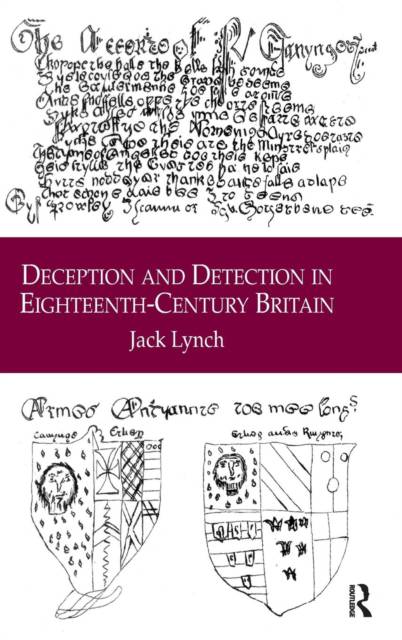
Bedankt voor het vertrouwen het afgelopen jaar! Om jou te bedanken bieden we GRATIS verzending (in België) aan op alles gedurende de hele maand januari.
- Afhalen na 1 uur in een winkel met voorraad
- In januari gratis thuislevering in België
- Ruim aanbod met 7 miljoen producten
Bedankt voor het vertrouwen het afgelopen jaar! Om jou te bedanken bieden we GRATIS verzending (in België) aan op alles gedurende de hele maand januari.
- Afhalen na 1 uur in een winkel met voorraad
- In januari gratis thuislevering in België
- Ruim aanbod met 7 miljoen producten
Zoeken
€ 305,45
+ 610 punten
Uitvoering
Omschrijving
In the first extended treatment of the debates surrounding public deception in eighteenth-century Britain, Jack Lynch contends that forgery, fakery, and fraud make explicit the usually unspoken grounds on which Britons made sense of their world. Confrontations with inauthenticity, in other words, bring tacitly understood conceptions of reality to the surface. Drawing on a wide range of contemporary print and manuscript sources"not only books and pamphlets, but ballads, comic prints, legal proceedings, letters, and diaries"Lynch focuses on the debates they provoked, rather than the forgers themselves. He offers a comprehensive treatment of the criticism surrounding fraud in most of the noteworthy controversies of the long eighteenth century. To this end, his study is structured around topics related to the arguments over deception in Britain, whether they concerned George Psalmanazar's Formosan hoax at the beginning of the eighteenth century or William Henry Ireland's Shakespearean imposture at the end. Beginning with the question of what constitutes deception and ending with an illuminating chapter on what was at stake in these debates for eighteenth-century British thinkers, Lynch's accessibly written study takes the reader through the means"whether simple, sophisticated, or tortuously argued"by which partisans on both sides struggled to define which of the apparent contradictions were sufficient to disqualify a claim to authenticity. Fakery, Lynch persuasively argues, transports us to the heart of eighteenth-century notions of the value of evidence, of the mechanisms of perception and memory, of the relationship between art and life, of historicism, and of human motivation.
Specificaties
Betrokkenen
- Auteur(s):
- Uitgeverij:
Inhoud
- Aantal bladzijden:
- 232
- Taal:
- Engels
Eigenschappen
- Productcode (EAN):
- 9780754665281
- Verschijningsdatum:
- 28/03/2008
- Uitvoering:
- Hardcover
- Formaat:
- Genaaid
- Afmetingen:
- 156 mm x 234 mm
- Gewicht:
- 503 g

Alleen bij Standaard Boekhandel
+ 610 punten op je klantenkaart van Standaard Boekhandel
Beoordelingen
We publiceren alleen reviews die voldoen aan de voorwaarden voor reviews. Bekijk onze voorwaarden voor reviews.









